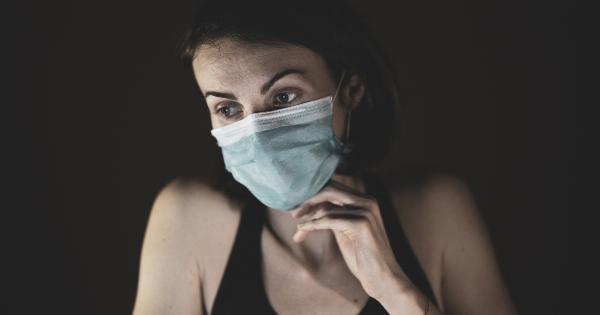Chickenpox, scientifically known as varicella, is a highly contagious viral infection that primarily affects children. It is characterized by its itchy, red rash and tiny, fluid-filled blisters that eventually scab over.
Chickenpox is caused by the varicella-zoster virus (VZV), which belongs to the herpesvirus family.
Transmission of Chickenpox
Chickenpox is primarily transmitted through direct contact with an infected person’s respiratory droplets or fluid from the blisters. The virus can also be spread through contact with contaminated surfaces.
It is highly contagious and can easily spread from one person to another, especially in crowded places like schools or daycare centers.
Symptoms and Incubation Period
The incubation period for chickenpox is typically around 10 to 21 days. During this time, infected individuals may not show any symptoms but can still spread the virus.
The initial symptoms of chickenpox often resemble those of a common cold, including fever, headache, and fatigue. The characteristic rash typically appears a day or two after the onset of these initial symptoms.
The Chickenpox Rash
The chickenpox rash usually starts as small, red bumps that quickly transform into fluid-filled blisters. These blisters can appear all over the body, including the face, scalp, and even inside the mouth.
As the rash progresses, the blisters may burst and form a crust or scab. The entire process from the appearance of the rash to the formation of scabs usually takes around one to two weeks.
Complications Associated with Chickenpox
While chickenpox is generally a mild and self-limiting disease, it can sometimes lead to complications, especially in certain high-risk groups.
Complications may include bacterial skin infections, pneumonia, encephalitis (inflammation of the brain), and even death in rare cases. Newborns, pregnant women, and individuals with weakened immune systems are more susceptible to severe complications.
Treatment and Prevention
There is no specific treatment for chickenpox. The focus is mainly on relieving symptoms and preventing complications. Over-the-counter medications such as acetaminophen can be used to reduce fever and alleviate discomfort.
It is important to avoid scratching the blisters to prevent secondary infections and scarring. The best way to prevent chickenpox is through vaccination.
Varicella Vaccination
Vaccination has proven to be highly effective in preventing chickenpox. The varicella vaccine contains a weakened form of the varicella-zoster virus, which stimulates the immune system to produce protective antibodies.
The vaccine is recommended for children aged 12 months and older and is typically administered in two doses, with the second dose given between the ages of 4 and 6 years.
Chickenpox and Herpes Zoster
After a person recovers from chickenpox, the varicella-zoster virus remains dormant in the body. It can reactivate later in life, causing a different condition called herpes zoster, or shingles.
Shingles is characterized by a painful rash that typically occurs on one side of the body. Vaccination against chickenpox has also been found to reduce the risk of developing shingles.
Management of Chickenpox Outbreaks
When a chickenpox outbreak occurs, certain measures can be taken to control the spread of the virus. Infected individuals should be isolated until the rash crusts over completely.
Good personal hygiene, such as frequent handwashing, can help prevent the transmission of the virus. Individuals who have been exposed to chickenpox can receive varicella-zoster immunoglobulin (VZIG) within a few days to reduce the severity of the infection.
Conclusion
Chickenpox is a highly contagious viral infection that primarily affects children but can also occur in adults. The varicella-zoster virus causes this disease, which is characterized by an itchy rash of fluid-filled blisters.
While usually not life-threatening, chickenpox can lead to severe complications in certain individuals. Vaccination has proven to be the most effective way to prevent chickenpox and its potential complications.






























